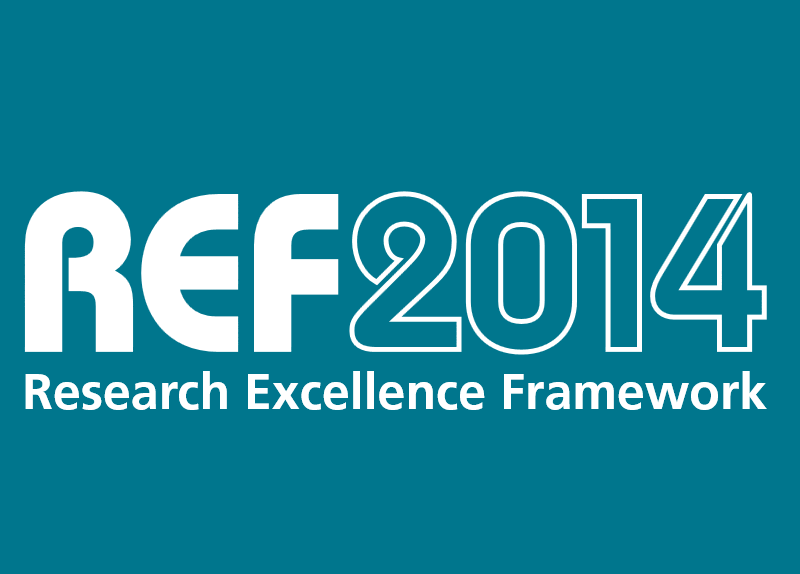Today’s publication of the 2014 Research Excellence Framework (REF2014) results confirms the importance of funding excellent research wherever it is found. REF2014 offers a snapshot of some of the world-leading research produced in institutions across the United Kingdom, which informs Government thinking on how to achieve a funding strategy that supports ‘pure’ and ‘translational’ research, and subsequently benefits international academic communities, students and the broader knowledge economy.
The GuildHE institutions and members of its Research Network, the Consortium for Research Excellence, Support and Training (CREST), that include many smaller and specialist universities, were deemed to have produced significant research that was ‘world-leading’ and ‘internationally excellent’ (based on the 4* to 1* rating system). The majority of the 23 GuildHE and CREST institutions submitting to the REF2014 improved in the discipline-based ‘Units of Assessment’ (UOAs) they submitted to, achieving a higher proportion of ‘world-leading’ and ‘internationally excellent’ research than in the previous Research Assessment Exercise (RAE2008). Furthermore, and perhaps most exciting, is the success of these institutions in achieving a significant intellectual, cultural and economic ‘impact’ for their excellent research in key areas of specialism (see note 4). This work ensures that the beneficiaries of research undertaken in higher education institutions extend beyond the academy, and that diverse local, regional, national and international audiences engage in and contribute to shaping discussions that extend the boundaries of knowledge.
Professor Joy Carter, Vice-Chancellor of the University of Winchester and Chair of GuildHE, said:
“I am delighted that REF2014 confirms that small and specialist universities are amongst those producing world-leading research. It is also significant that GuildHE universities have been recognised for research which brings wide-ranging and important benefits to the economy and society in the new impact measure.”
Dr. Andy Dixon, Director of Research at the University of Chichester and Director of CREST, said:
“The results for CREST show how specialist and regional universities can leverage excellent research to achieve significant impact in broader cultural and economic terms. GuildHE / CREST institutions and their researchers have built up an impressive body of collaborators and beneficiaries, as evidenced by theirs and HEFCE’s work at gathering information on the ‘impact’ of research. Key beneficiaries and partners include local businesses, charities, museums, cultural organisations and policy makers, in particular those working in the areas of religion, agriculture, education, social welfare and public health.”
Notes to editors
- The Consortium for Research Excellence, Support and Training (CREST) provides an innovative model for how to further research excellence and promote institutional and interdisciplinary collaboration. The CREST exists for institutions that have achieved high levels of research excellence concentrated in smaller communities of research practice, in order to
- create a collaboration of equal partners seeking to achieve research excellence through collegiality and mutual support
- achieve collective and individual innovations in translational research with benefits for students, society and industry
- build research capacity within participating institutions and secure critical mass together while retaining diverse, student-centred, research-led learning environments
- provide an external structure for the sustainable delivery of the research objectives of members and the promotion and promulgation of their achievements.More information is available at https://www.crest.ac.uk
- CREST is a sub-association of GuildHE, the recognised higher education representative body. For a listof GuildHE institutions, please visit: https://www.guildhe.ac.uk/members/
- The Research Excellence Framework (REF) is the system for assessing the quality of research in UK higher education institutions (HEIs). It replaced the Research Assessment Exercise (RAE). More information and the results of the REF are available at https://www.ref.ac.uk/
- For example, Abertay University and York St. John University both achieved 100% 4* and 3* impact ratings in UOA 4 (Psychology, Psychiatry and Neuroscience); the University of Worcester achieved an 80% 3* impact rating in UOA 5 (Biological Sciences); Harper Adams University achieved a 56% 4* and 3* rating in UOA 6 (Agriculture, Veterinary and Food Science); Glyndwr University secured an 80% 3* impact rating in UOA 13 (Electrical and Electronic Engineering, Metallurgy and Materials); the University of Chichester secured a 90% 4* and 3* rating in UOA 26 (Sport and Exercise Sciences, Leisure and Tourism); the University of Winchester achieved 90% 4* and 3* impact in UOA 33 (Theology and Religious Studies); Norwich University of the Arts, University for the Creative Arts and the University of Cumbria all achieved 90% 4* and 3* impact ratings in UOA 34 (Art and Design: History, Theory and Practice); and the Royal Central School of Speech and Drama achieved a 100% 4* and 3* impact rating in UOA 35 (Music, Drama, Dance and Performing Arts).

